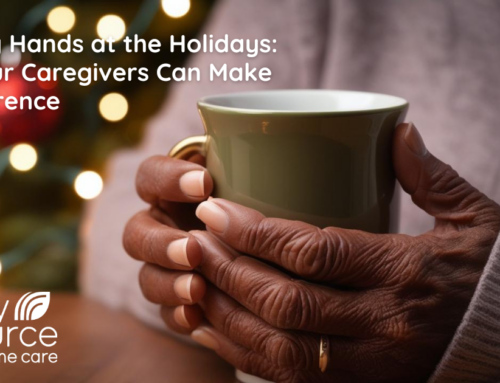Loneliness is a prevalent and deeply impactful emotional state that affects individuals of all ages. However, its effects can be particularly pronounced among the elderly population. As people age, various life changes, such as retirement, loss of loved ones, and reduced mobility, can lead to increased feelings of isolation and loneliness. For caregivers looking after the elderly, recognizing and addressing these feelings of loneliness is crucial for promoting their mental and emotional well-being. Loneliness tests, can give the elderly (or any age) a look into how they may proceed to improve their overall mental health.
The Impact of Loneliness on the Elderly
Loneliness among the elderly is not merely a fleeting emotion; it can have profound effects on their overall health. Research has consistently shown that chronic loneliness in older adults is associated with a higher risk of various physical and mental health issues, including depression, anxiety, cardiovascular problems, cognitive decline, and even a shortened lifespan.
Moreover, loneliness can exacerbate existing medical conditions, leading to a decline in the quality of life. The lack of social interaction and emotional support can contribute significantly to the deterioration of mental health in older adults, making them more susceptible to other age-related ailments.
Identifying Loneliness: Six Loneliness Tests To Help Identify Symptoms
For caregivers, identifying and understanding loneliness in the elderly is the first step toward providing effective support. Here are three common loneliness tests that can help assess an individual’s day-to-day loneliness ranking:
- The UCLA Loneliness Scale: This widely used questionnaire assesses subjective feelings of loneliness and social isolation. It comprises a series of statements that individuals rate based on their experiences, measuring their perceived feelings of isolation and the quality of their relationships.
- The De Jong Gierveld Loneliness Scale: This tool focuses on emotional loneliness and social loneliness, recognizing the distinction between the lack of close relationships and the absence of a broader social network. It helps caregivers understand specific areas where an elderly person might feel disconnected.
- The Lubben Social Network Scale (LSNS): This scale evaluates social isolation by examining the size and quality of an individual’s social network. It measures the number of family and friends available for social support, shedding light on the level of social interaction an elderly person experiences.
- Chronic loneliness test (15 Items): The Chronic Loneliness Test offered by PsychMechanics is designed to evaluate an individual’s tendency towards chronic loneliness. Comprising 16 straightforward statements, this quiz aims to measure the intensity and persistence of feelings related to chronic loneliness.
- The Loneliness Test: The Loneliness Test available on Verywell Mind is designed to assess an individual’s feelings of loneliness. It consists of a series of multiple-choice or Likert-scale questions intended to gauge the extent of an individual’s loneliness.
- The Loneliness Quiz: The loneliness quiz available on PsychCentral aims to assess an individual’s feelings of loneliness. Comprising 10 simple questions, this quiz focuses on various aspects of an individual’s social interactions, emotional connections, and overall sense of belonging. The questions delve into feelings of isolation, the quality of relationships, and the frequency of social interactions.
Using these different loneliness tests can offer valuable insights into an elderly person’s emotional state and social connections, aiding caregivers in identifying the depth and nature of their loneliness.
Ways Caregivers Can Help Alleviate Loneliness in the Elderly
Once loneliness is identified, caregivers play a pivotal role in mitigating its impact on the elderly. Here are some strategies to consider:
- Encourage Social Engagement: Encouraging participation in community activities, clubs, or social groups tailored for seniors can foster social connections. This could involve arranging transportation or facilitating virtual meetups to ensure accessibility.
- Foster Meaningful Connections: Engage in meaningful conversations and activities with the elderly individual to create a sense of belonging and purpose. Sharing stories, hobbies, or engaging in reminiscence therapy can foster emotional connections.
- Technology Assistance: Help elders embrace technology to stay connected with family and friends through video calls, social media, or online communities. Teach them how to use smartphones or tablets to bridge the gap caused by physical distance.
- Professional Support: Encourage participation in support groups or consider professional counseling services specializing in geriatric mental health. These avenues offer a safe space for sharing experiences and seeking emotional support.
- Regular Check-Ins: Consistent and genuine communication is key. Regularly checking in on the elderly person, whether in person or through phone calls, shows care and concern for their well-being.
Conclusion
Loneliness among the elderly is a complex and pervasive issue that requires immediate attention and proactive measures from caregivers. By comprehending the significance of loneliness, utilizing validated loneliness tests, and applying supportive strategies, caregivers can greatly improve the emotional well-being of the seniors they support. Empathy, patience, and establishing deeper connections are crucial in addressing the silent epidemic of loneliness prevalent among our senior population, especially in regions like Spokane/North Idaho. If you’re in these areas and seeking assistance for elderly care during the isolating winter months, our Spokane Valley branch and our 31 locations across Washington, Oregon, and Idaho stand ready to offer support and companionship.






